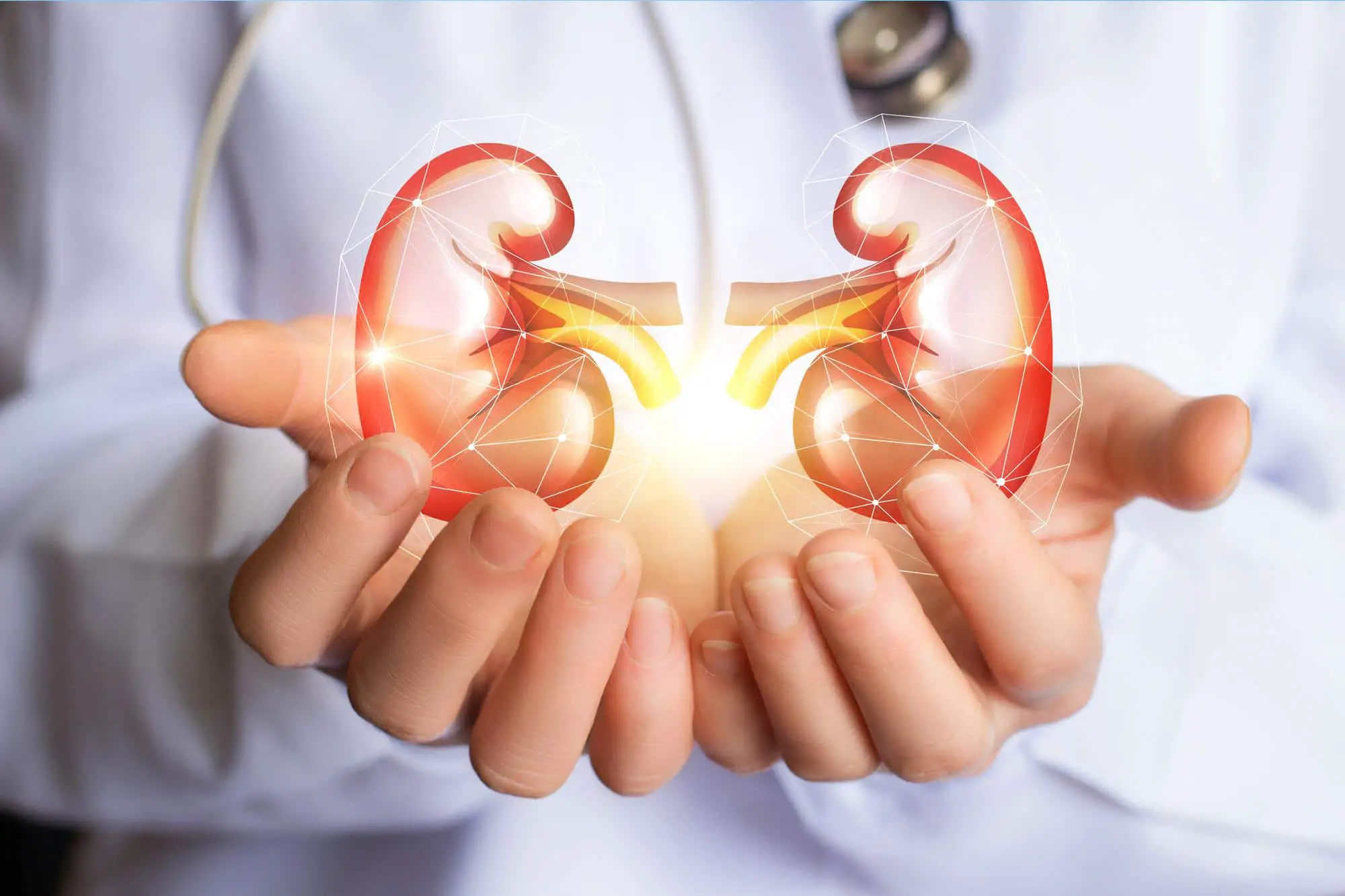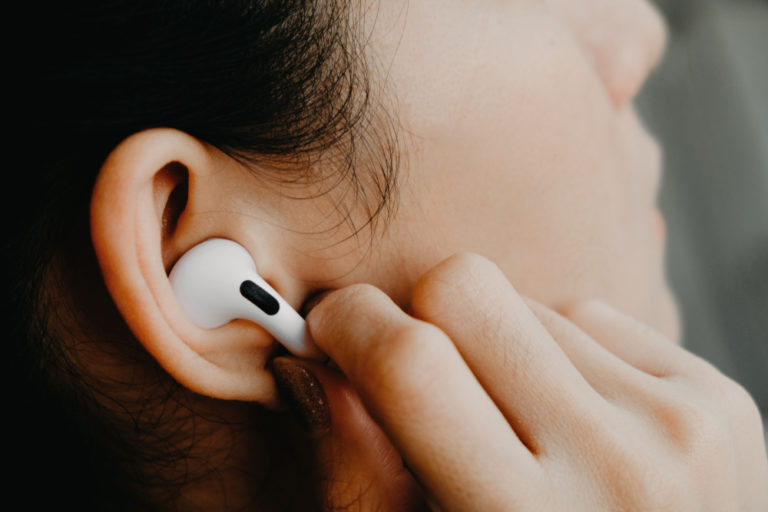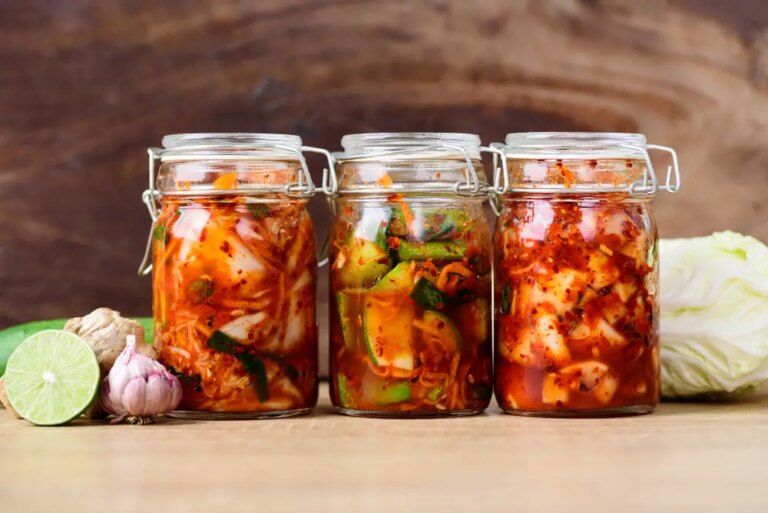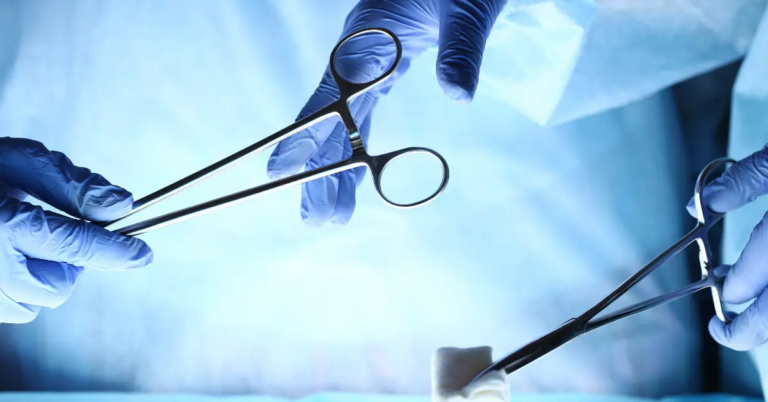Did you know that your kidneys are among the most crucial organs in your body? They perform a wide range of vital functions, including filtering blood, producing hormones, eliminating toxins, and maintaining the body’s mineral balance.
Unfortunately, many people underestimate the importance of kidney health and fail to take proper care of these vital organs. These negligent behaviors can lead to severe conditions like a kidney infection, which can cause significant discomfort and health complications.
Alarming Statistics on Kidney Disease
According to the latest statistics from the Centers for Disease Control and Prevention (CDC), 14% of the US population, equivalent to 35.5 million or one in seven adults, have chronic kidney disease (CKD). Alarmingly, nine out of 10 people may not be aware of it. [1]
As individuals age, their vulnerability to the disease increases significantly, with a staggering 33.7% of those aged 65 and above diagnosed with CKD, in stark contrast to a mere 12.3% of individuals aged 45-64. [1]
Moreover, a study published in The Lancet predicts that chronic kidney disease will be the fifth leading cause of death globally by year 2040, which is a staggeringly huge leap from being only 16th in 2016. [2]
These numbers underscore the importance of understanding the symptoms and causes of kidney infections to catch and treat them early, potentially preventing their progression into chronic kidney disease. [2]
Beware the Silent Killer
Kidney disease has earned the ominous reputation of being a “silent killer” or “silent epidemic” due to its gradual progression and lack of noticeable early symptoms. This insidious nature makes it difficult to detect and diagnose the condition in its early stages when interventions can be most effective.
Numerous studies have underscored this silent characteristic of kidney disease. For example, a study published in the American Journal of Kidney Diseases found that nearly half of the participants with CKD were unaware of their condition. [3]
Another study published in the Archives of Internal Medicine revealed that individuals with reduced kidney function were more likely to experience cardiovascular events and premature death, highlighting the hidden dangers of kidney disease. [4]
These findings emphasize the urgent need for increased awareness, routine screenings, and early intervention to combat this silent but deadly health crisis. Being aware of the symptoms and having knowledge about effective treatments for kidney infections can be a lifesaver.
Top 10 Deadly Habits Damaging Your Kidneys
Stay informed and be aware of these deadly habits that can seriously damage your kidneys.
1. Not Drinking Enough Water
According to the Centers for Disease Control and Prevention (CDC), water plays a vital role in maintaining kidney health. Insufficient water intake can lead to the buildup of waste and toxins, causing damage to the kidneys over time. If not addressed, this could lead to more serious complications, such as a kidney infection.
Preventive Measure: Ensure that you drink an adequate amount of water each day. The US National Academies of Sciences, Engineering, and Medicine recommend a daily water intake of about 3.7 liters for men and 2.7 liters for women, including water from beverages and food sources.
2. Too Much Salt in Your Diet
High salt intake has been linked to increased blood pressure, which can put a strain on the kidneys. A study published in the International Journal of Molecular Sciences found that sodium has a heightened impact on blood pressure in individuals with chronic kidney disease, leading to fluid overload and harmful effects on the heart, blood vessels, and kidneys. Hence, a low-sodium diet is recommended for CKD patients, which also offers benefits for managing blood pressure. [5]
Preventive Measure: Limit your daily salt intake to no more than 5 grams, as recommended by health authorities. Be mindful of hidden sources of salt in processed foods and try to choose low-sodium alternatives.

3. Frequently Delaying the Call of Nature
Delaying the urge to urinate can lead to increased pressure on the kidneys, potentially causing kidney diseases, kidney stones, kidney failure, and incontinence. Research has found that holding urine for prolonged periods can contribute to urinary tract infections and bladder dysfunction. [6]
Preventive Measure: Respond to the urge to urinate promptly and avoid resisting the natural call of nature. Take regular bathroom breaks, especially when you feel the need to pee.
4. Too Much Sugar
Excessive sugar consumption has been associated with kidney damage. A systematic review published in Nephrology suggests that high sugar intake, particularly in the form of sugar-sweetened soda, is linked to an increased risk of CKD. [7]
Preventive Measure: Reduce your intake of sugary drinks and processed foods that contain added sugars. Opt for healthier alternatives such as water, herbal tea, and natural fruit juices in moderation.
5. Vitamin and Mineral Deficiencies
Nutritional deficiencies, particularly in vitamin B6 and magnesium, have been linked to an increased risk of kidney stones. Studies have demonstrated that low vitamin B6 levels can increase the risk of kidney stone formation because oxalate production is poorly controlled without adequate levels of the vitamin. [8,9]
Preventive Measure: Maintain a balanced and nutritious diet that includes a variety of fruits, vegetables, whole grains, and lean proteins. Consider incorporating foods rich in vitamin B6, such as bananas, avocados, and salmon, into your diet.
6. Too Much Animal Protein
Consuming excessive amounts of animal protein, especially red meats, can increase the metabolic load on the kidneys. A study published in the Journal of the American Society of Nephrology suggests that high animal protein intake may contribute to the progression of kidney disease. [10]
Preventive Measure: Reduce your intake of red meats and processed meats. Explore plant-based protein sources such as legumes, tofu, and quinoa as alternatives.
7. Sleep Deprivation
Inadequate sleep can lead to increased stress and damage to the kidneys. A study published in the World Journal of Nephrology found an increased risk of CKD progressing to end-stage renal disease for people who sleep less than five hours. [11]
Preventive Measure: Prioritize quality sleep by establishing a consistent sleep schedule, creating a sleep-friendly environment, and practicing relaxation techniques before bedtime.
8. Too Much Cream and Syrup in Coffee
Coffee itself is generally safe, but added ingredients and processing methods can be a concern. Drinking three to four cups a day, especially with creamers or milk, can raise potassium levels. Certain coffee variations, like a cafe latte without flavored syrup, can be high in phosphorus (183 mg) and potassium (328 mg), which may be problematic for individuals with dietary restrictions or kidney issues.
Preventive Measure: Opt for black coffee without added ingredients or flavors to avoid excess potassium or phosphorus intake. If you prefer adding milk or creamer, choose low-potassium alternatives or consider non-dairy options to minimize potassium intake while enhancing flavor.
9. Painkiller Abuse
Frequent use of painkillers, such as nonsteroidal anti-inflammatory drugs (NSAIDs), can have adverse effects on kidney health. Research from the Brazilian Journal of Nephrology suggests that long-term use of NSAIDs can lead to kidney damage and chronic kidney disease. [13]
Preventive Measure: Use painkillers only as directed by a healthcare professional and try alternative methods of pain relief, such as hot or cold packs, physical therapy, or natural remedies.
10. Alcohol Consumption
Excessive alcohol consumption can significantly burden the kidneys and lead to kidney damage and disease. The National Kidney Foundation emphasizes that alcohol is a toxin that can harm the kidneys when consumed in large quantities. [14]

Preventive Measure: Practice moderation when consuming alcohol. Limit your intake to moderate levels, which is defined as one drink per day for women and up to two drinks per day for men.
My Personal RX
Taking care of your kidneys is essential for maintaining overall health and well-being. By adopting healthy habits and avoiding the top 10 deadly habits, you can protect your kidneys and reduce the risk of kidney diseases.
In addition to the preventive measures above, here are my personal recommendations for keeping your kidneys happy and healthy.
- Regularly check and manage your blood pressure, as high blood pressure can contribute to kidney damage.
- Follow a heart-healthy diet, limit sodium intake, exercise regularly, and consult with your healthcare provider for appropriate management.
- Engage in regular physical activity as it helps maintain a healthy weight, promotes cardiovascular health, and contributes to overall well-being.
- Care for your health holistically. Download my free step-by-step protocol for promoting overall well-being through a holistic approach to health transformation.
- I highly recommend taking my Super Greens powder supplement, packed with nutrients from 16 organic berries, vegetables, and greens, offering a convenient and nutritious way to support your health and reduce inflammation in the body.

References:
- Chronic Kidney Disease in the United States, 2023. (n.d.). https://www.cdc.gov/kidneydisease/publications-resources/ckd-national-facts.html
- Foreman KJ, Marquez N, Dolgert A, et al. Forecasting life expectancy, years of life lost, and all-cause and cause-specific mortality for 250 causes of death: reference and alternative scenarios for 2016-40 for 195 countries and territories. Lancet. 2018;392(10159):2052-2090. doi:10.1016/S0140-6736(18)31694-5
- Chu CD, McCulloch CE, Banerjee T, et al. CKD Awareness Among US Adults by Future Risk of Kidney Failure. Am J Kidney Dis. 2020;76(2):174-183. doi:10.1053/j.ajkd.2020.01.007
- Parikh NI, Hwang SJ, Larson MG, Meigs JB, Levy D, Fox CS. Cardiovascular disease risk factors in chronic kidney disease: overall burden and rates of treatment and control. Arch Intern Med. 2006;166(17):1884-1891. doi:10.1001/archinte.166.17.1884
- Borrelli S, Provenzano M, Gagliardi I, et al. Sodium Intake and Chronic Kidney Disease. Int J Mol Sci. 2020;21(13):4744. Published 2020 Jul 3. doi:10.3390/ijms21134744
- Jagtap S, Harikumar S, Vinayagamoorthy V, Mukhopadhyay S, Dongre A. Comprehensive assessment of holding urine as a behavioral risk factor for UTI in women and reasons for delayed voiding. BMC Infect Dis. 2022;22(1):521. Published 2022 Jun 6. doi:10.1186/s12879-022-07501-4
- Cheungpasitporn W, Thongprayoon C, O’Corragain OA, Edmonds PJ, Kittanamongkolchai W, Erickson SB. Associations of sugar-sweetened and artificially sweetened soda with chronic kidney disease: a systematic review and meta-analysis. Nephrology (Carlton). 2014;19(12):791-797. doi:10.1111/nep.12343
- Kaul, P., Sidhu, H., Sharma, S. K., & Nath, R. (1996). Calculogenic potential of galactose and fructose in relation to urinary excretion of lithogenic substances in vitamin B6 deficient and control rats. Journal of the American College of Nutrition, 15(3), 295-302. doi:10.1080/07315724.1996.10718601
- Curhan, G. C., Willett, W. C., Speizer, F. E., & Stampfer, M. J. (1999). Intake of vitamins B6 and C and the risk of kidney stones in women. Journal of the American Society of Nephrology, 10(4), 840-845. doi:10.1681/ASN.V104840
- Ko GJ, Rhee CM, Kalantar-Zadeh K, Joshi S. The Effects of High-Protein Diets on Kidney Health and Longevity. J Am Soc Nephrol. 2020;31(8):1667-1679. doi:10.1681/ASN.2020010028
- Maung SC, El Sara A, Chapman C, Cohen D, Cukor D. Sleep disorders and chronic kidney disease. World J Nephrol. 2016;5(3):224-232. doi:10.5527/wjn.v5.i3.224
- Coffee and Kidney Disease: Is it Safe? (2022, February 1). National Kidney Foundation. https://www.kidney.org/newsletter/coffee-and-kidney-disease
- Lucas GNC, Leitão ACC, Alencar RL, Xavier RMF, Daher EF, Silva Junior GBD. Pathophysiological aspects of nephropathy caused by non-steroidal anti-inflammatory drugs. J Bras Nefrol. 2019;41(1):124-130. doi:10.1590/2175-8239-JBN-2018-0107
- Alcohol and Your Kidneys. (2021, December 6). National Kidney Foundation. https://www.kidney.org/atoz/content/alcohol



















